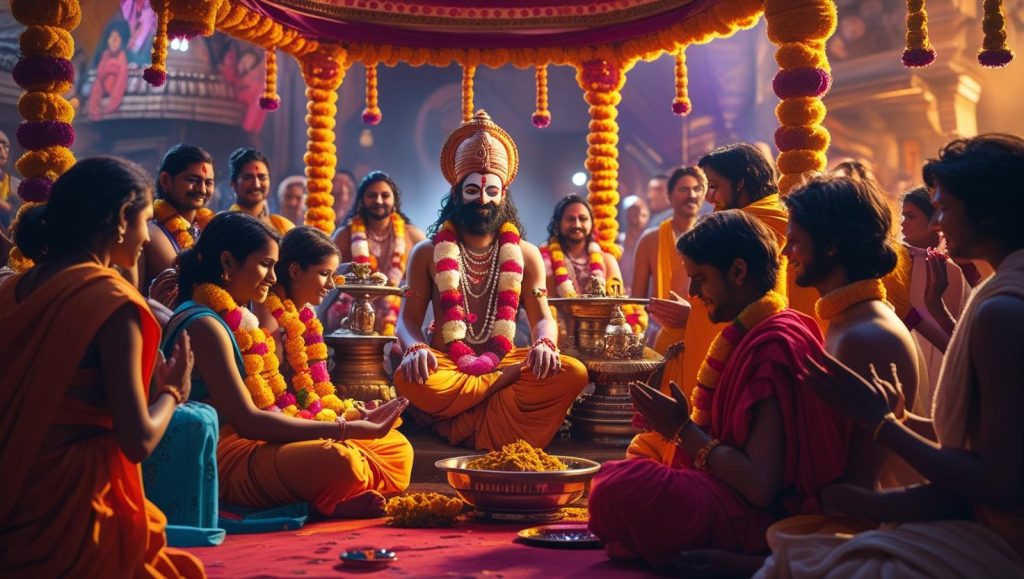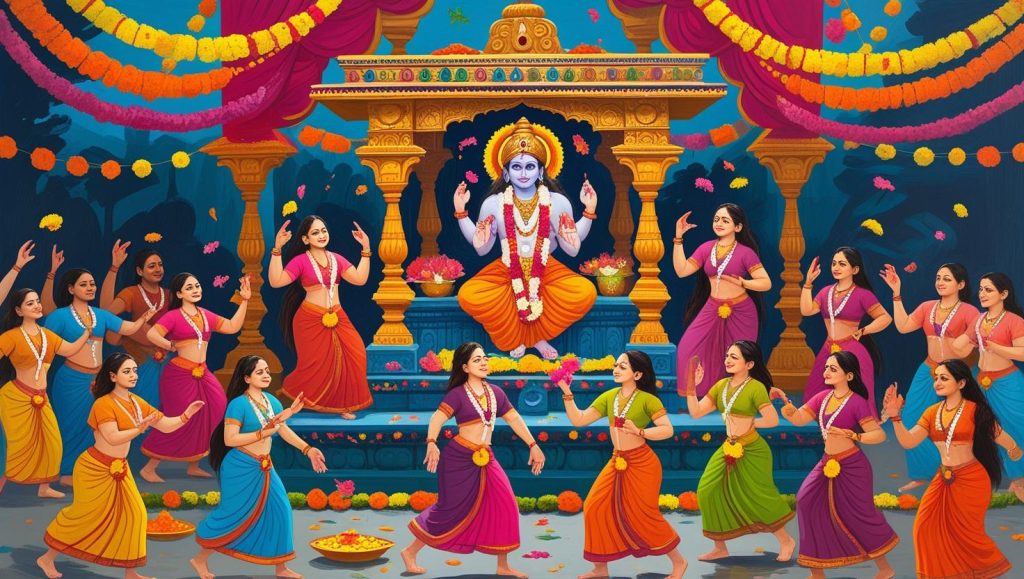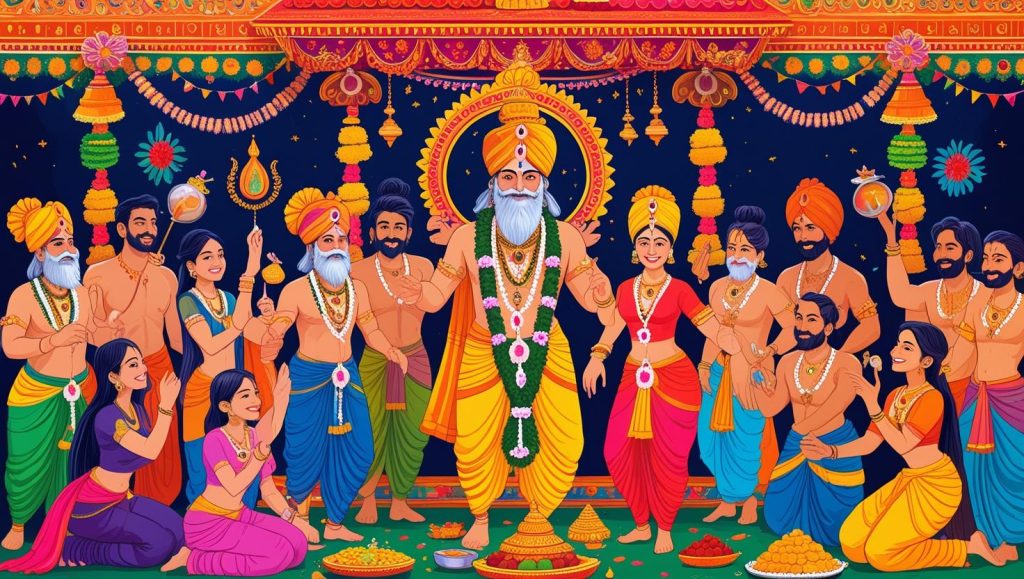In Jain Dharma, every Tirthankar is honored through sacred rituals and annual festivals that strengthen the bond between devotees and their faith. Padmaprabha Swami, symbolized by the lotus, is revered for his life of purity and enlightenment. His festivals and rituals are celebrated with devotion across Jain communities, inspiring spiritual growth and harmony.
Major Festivals Honoring Padmaprabha Swami

1. Janma Kalyanak (Birth Anniversary)
The birth of Padmaprabha Swami is celebrated with great enthusiasm by devotees. Rituals include abhisheka (ceremonial bathing of idols), prayers, and recitation of sacred Jain scriptures. Temples are decorated with flowers and lotus symbols, reminding devotees of his divine emblem.
2. Keval Jnana Kalyanak
This festival commemorates the moment when Padmaprabha Swami attained Keval Jnana (omniscience). On this day, devotees engage in meditation, fasting, and discourses that emphasize his teachings of non-violence and truth.
3. Nirvana Kalyanak (Liberation Day)
The day Padmaprabha Swami attained Moksha (liberation) is celebrated as a deeply spiritual occasion. Rituals include lamp-lighting, chanting, and sermons that remind devotees of the path to freedom from worldly attachments.

Daily and Ritual Practices
Beyond festivals, Jain followers honor Padmaprabha Swami through daily rituals such as:
- Pratikraman – Reflection and repentance of one’s actions.
- Puja and Aarti – Offerings of flowers, rice, and sandalwood with devotional prayers.
- Meditation – Seeking inner peace through contemplation of his teachings.
- Fasting and Vows – Strengthening discipline and self-control, central to Jain practice.
Community Celebrations
During festivals, Jain communities gather in temples for discourses, bhajans (devotional songs), and cultural programs. These celebrations not only honor Padmaprabha Swami but also spread the values of compassion, peace, and unity.
Conclusion
The festivals and rituals celebrating Padmaprabha Swami go beyond ceremonies—they are opportunities to reflect, purify, and embrace the eternal values of Jain Dharma. For devotees, these sacred moments are reminders to walk on the path of truth, non-violence, and liberation.


